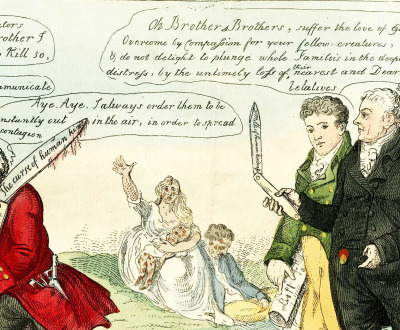Miscellany
John Stow records in his Survey of London that shortly after conquering England in 1066, William I decreed that “in every town and village, a bell should be nightly rung at eight o’clock, and that all people should then put out their fire and candle, and take their rest.” English speakers call such a prohibition a curfew, a word derived from the Anglo-Norman coeverfu, “cover fire.”
Miscellany
After the pope refused to annul his marriage to Catherine of Aragon, King Henry VIII separated the Church of England from the Roman Catholic Church in the 1530s, initiating a series of property seizures that delivered coal-rich church lands in England to gentry who had it mined and sold to consumers in the cities. Over the next two centuries, the English coal-mining industry ballooned in scale; coal replaced wood as the country’s main energy source and fueled its rapid urbanization.
Miscellany
When Indian prime minister Indira Gandhi was found guilty of corruption and fraud in 1975 by the Allahabad High Court, she instituted a state of emergency to control the opposition, suspending elections and arresting dissidents. She cabled world leaders to defend her decision, after which the British Foreign and Commonwealth Office declared that “an authoritarian regime is better equipped than a democracy” to “make India less of a burden on the world” and increased British aid to India by over 30 percent.
Pages

